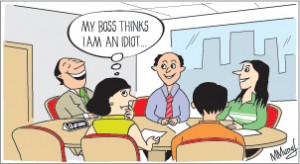When negative thoughts prevail
View(s):Aaron Beck, Emeritus Professor of Psychiatry of the University of Pennsylvania is considered as the father of cognitive behaviour therapy.
Beck first developed his ideas on cognitive therapy in relation to depressive disorder. He noticed that people who were depressed had depressive, negative or pessimistic thoughts. This was no surprise because it was thought that the pervading low mood state gave rise to these thoughts. However what was unusual was that people after making an apparent recovery continued to have more depressive or negative thoughts compared to those who did not have a history of depression. On the basis of these observations Beck speculated perhaps it were the depressive and pessimistic thoughts that gave rise to depression rather than the other way around.


MediScene continues our series on mental illness by Consultant Psychiatrist Prof. Raveen Hanwella. Prof. Hanwella who is attached to the National Hospital is Head, Department of Psychological Medicine, Faculty of Medicine, University of Colombo. Something bothering you? Please write in to Prof. Hanwella C/o MediScene, The Sunday Times, No. 8, Hunupitiya Cross Road, Colombo 2 or e-mail: raveensundaytimes@gmail.com
In psychoanalysis, patients are asked to express whatever thoughts come to their mind no matter how trivial or unpleasant they may be. This is called free association and is one of the fundamental tools of psychoanalytic therapy. Beck while doing psychoanalysis with his patients realised that in addition to the reported content of their thoughts they also had a parallel stream of thought of a self-critical nature. He also noted that these thoughts preceded an unpleasant emotional state. He called these thoughts negative automatic thoughts (NATS), negative in that they are associated with unpleasant emotions and automatic since they appear in the minds of patients in the absence of a deliberate reasoning process. As a person becomes more depressed NATS become more frequent and intense and more rational thoughts are gradually crowded out.
How do negative automatic thoughts arise? Beck thought that the early life experiences of a person gave rise to certain core beliefs which in turn led to assumptions or rules about life. If these rules are dysfunctional they give rise to negative automatic thoughts in the face of stressful life situations. These dysfunctional assumptions are somewhat similar to the rules of life described by Ellis. Here are some of the common dysfunctional assumptions or cognitive distortions that have been identified.
The following list is from the book “Feeling Good” by David Burns. All or Nothing thinking – This refers to black and white thinking technically called dichotomous thinking. The person thinks in the absolute with no allowances for shades of grey.
n Overgeneralisation – In this cognitive distortion, you come to a general conclusion based on a single incident or a single piece of evidence. If something bad happens only once, you expect it to happen over and over again.
Filtering – Here you select the negative details and magnify them while filtering out all positive aspects of the situation.
Disqualifying the positive – In this distortion the person does not merely ignore positive experiences but transforms them into negative ones
Jumping to conclusions – Here you arbitrarily come to a negative conclusion that is not justified by the facts.
Magnification and Minimisation – is the distortion of giving proportionally greater weight to a perceived failure, weakness or threat, or lesser weight to a perceived success, strength or opportunity.
Emotional reasoning – This is taking your emotions as evidence for the truth.
Should statements – It is doing, or expecting others to do, what they morally should or ought to do irrespective of the particular case the person is faced with.
Labelling and Mislabelling – It is an extreme form of overgeneralisation where you attribute a person’s actions to their character.
Personalisation – Here you see yourself as the cause of a negative event even when there is no justification for thinking so. For example a mother whose son is not performing well in school thinks that she is a bad mother.
The above ten cognitive distortions are responsible for most of the depressive states that a human being gets into. Study them thoroughly and learn to identify them as they occur in your life.
In depression cognitive therapy aims to lift the mood by changing a person’s maladaptive thoughts. The first step is to identify such maladaptive thoughts. This is not always easy as a person may experience a negative mood state immediately after a triggering event without being aware of the maladaptive thought. There are various techniques for doing so and maintaining a thought diary is one. The person is asked to write the thoughts that come to mind whenever he or she feels a negative emotion. For example a person who feels low in the middle of a board meeting might be having the thought, “I am incompetent and my boss thinks I am an idiot.” Once there is an adequate sample of thoughts gathered over a period of time in different situations, the thought patterns can be analysed and the underlying core assumptions understood. These thought patterns are then changed by repeatedly and logically questioning their validity.
This may look straightforward, but in practice is not that easy. Although there are several DIY cognitive therapy books and even computer programs, in the case of a serious depression it is best to seek the help of qualified therapist.


